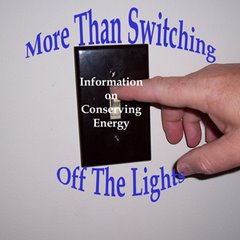Does turning off the computer when not in use save a lot of energy? It depends on what you consider a lot of energy.
If you turn your computer off for 8 of the 24 hours of the day the computer will use 1/3 less energy than leaving it on all day.
One estimate I found said that it costs 2-5 cents per hour to run a computer. There are many factors that determine this cost including the cost of electric, type of system and type of monitor.
So let's use the figure of 5 cents an hour. If the computer is off for 8 hours the savings is 40 cents a day. This is less then most daily paper.
Here is where the savings look better. 40 cents a day for 30 days equals 12 dollars a month. Take this for the 365 days it's 146 dollars.
So is it worth 146 dollars to turn it off?
In a business that uses two to hundreds of computers, it's not difficult to see that there's a possibility of a substantial savings by powering the computer off.
The more a computer is off the greater the savings. For many the home computer may only need to be on those few hours a day. By having it on for the 8-10 hours a person is at work and the 6-8 hours sleeping, it is just money idling off to waste.
The same goes for a business that leaves unnecessary computers running when no one is in the office using them. Most offices are vacant for 12 hours a day or more and weekends.
One option is to put the computer in a stand-by mode. For short periods use stand-by and for longer use sleep or hibernate mode. While not completely off, in hibernate mode the computer may be using 75-90% less power.
Current computer operating systems have power control capabilities built into them. By default they are turned off and need to be set up by the user. One recommended setting is to put the computer in stand-by after 15 minutes of non-use and to set it to hibernate after 30 minutes.
I do turn the computer off at night as well as during the day when I know I'll be away for several hours. I try to put it on stand-by when I'm going to be away for more than 10-15 minutes.
One common myth is that screen savers save energy. This is not true. Screen Savers, even the ones that show a blank screen, uses as much and in some cases more energy.
The purpose of a screen saver was to prevent the burning of an image into the phosphor inside the cathode ray tube after hours of the same image being rescanned. They did this by a constantly changing the screen image. Modern display technology makes this burn-in unlikely.
Two other common myths deal with reasons to leave a computer on. One being that the surge in power when turning it on is great. The surge when turning on a computer is slight and the amount of additional electric is recovered by just having it off for a few minutes.
The other is that turning it on and off can reduce the computer’s life. Technology has developed to a point that turning the system on and off has little effect on their life.
© 2007 Steven G. Atkinson – All Rights Reserved
Digg this story
Subscribe to:
Post Comments (Atom)

No comments:
Post a Comment